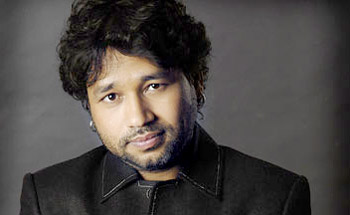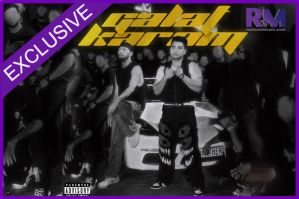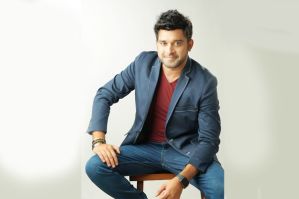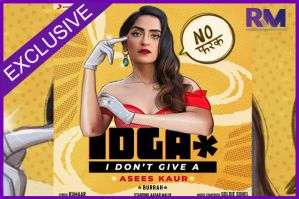Kailash Kher - "We just want to take our music to the world"

Kailash Kher's story is typical of the new raw talent that has made its presence felt in the music space in India - be it independent music or Hindi film.
36 year old Kher, who hails from a small town in northern India, tried his hand at business before chucking it all up to come to Mumbai and try his luck armed with nothing but his voice. Within a decade, Kher drummed up his own band with Paresh and Naresh, made his mark with his raw, earthy voice and ethno contemporary compositions, and is today one of the most sought after singers - for film playback, non film albums as well as live performances.
Kher is also maintaining the pace of his solo albums - in a short span, the man has seen it and done it all and worked with industry veterans like Oscar winning composer A R Rahman.
His band Kailasa is now ready to take its music to international listeners and has several performances scheduled at places like Brooklyn Music Festival, Stern Groove Festival, San Francisco, Philadelphia and Houston. Towards September, the band will perform at the coveted Hollywood Ball in Los Angeles.
Excerpts of a chat with Radioandmusic.com's Chirag Sutar before Kher left on his whirlwind tour.
How are your tours planned?
You will be surprised – we are not getting paid for this. The entire 40 day tour is self sponsored and will cost us almost Rs 2.2 million, but we are not really complaining, we'll get to spread our music, and it doesn't always work to our benefit to put our foot down and demand a price for everything. This, I think is our own passion or madness. We just want to take our music to the world and do something unique, and certainly stop getting fussy with the commercial aspects of the art.
For the all the venues we perform, we will be representating India, for us – that's a big thing…
What do you think about the kind of live concerts venues that we have in India. As a performer, are you satisfied?
(laughs) No, no, not at all… honestly, people are yet to witness a �performance'. If you see the state of our existing halls and auditoriums, you will be surprised – you'll feel sad about it. It's not that they are useless – good concerts do happen at such venues, but artistes have to compromise. We say India is progressing, but there is not a single arena which can hold at least 25-30,000 listeners.
Did your latest album Kailasa Chaandan Mein have to be postponed due to the economic slowdown?
The label had suggested that we postpone the release of the album because the market situation was not favorable. The label was of the opinion that nobody in the record industry was doing anything. Personally, I think everybody is just scared – nothing worse has happened because of the recession, but I don't understand why labels have this preconceived notion that �No, private music is not selling …' But what I say is – at least take the first step, who knows, things may work out well.
Commercially, film music still remains the most viable option for labels…
In India, there are many variations. There are variations in mindsets, and it's not really easy to impress everybody – that is because we are in this transition phase. Our first generation was illiterate, but now suddenly everybody's armed with a degree. So, there are a lot of generation gaps.
Even today, there exists a section, who thinks music is only of one kind and that is �film music' they call it �filmi music' – the first thing that we have to do is make people understand that there is music other than just films, and there is something called non-film or alternative music.
How do you think the situation can be changed?
My understanding says, even if films stop producing music, music as an art from will still exist. Now we have to make people understand that – just because film music is publicised more, that doesn't mean that is the only music we produce. In such a scenario, all I can do is appeal to the people and say that �hey, there is something to be heard.' Go and check!
I think the audience's mindset has also changed, and so has their taste. People have begun to differentiate good from the bad. Earlier, people would accept anything that was given to them… but today, nobody can be fooled.

















